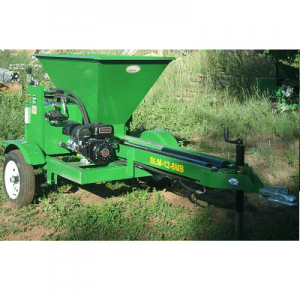
Agriculture
February 29, 2024
BLM-12-8M by EarthTek Inc.
Read SolutionImplemented by
EarthTek Inc.
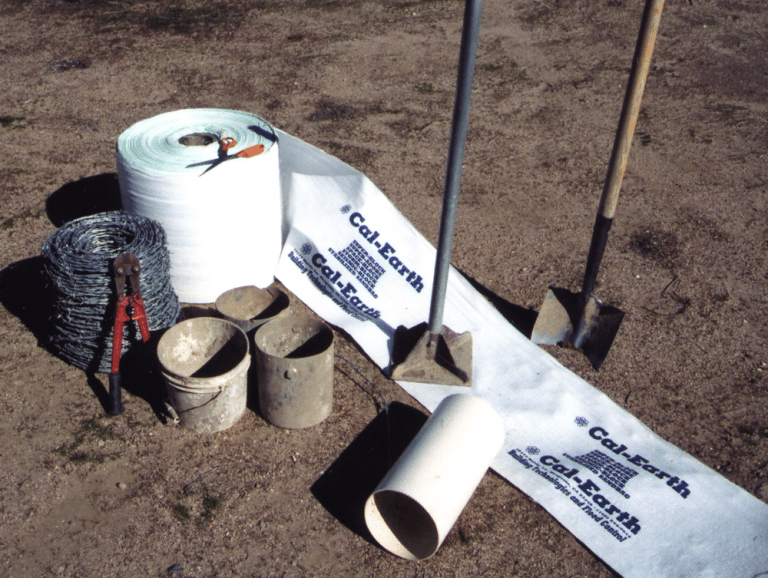
Updated on February 27, 2024
·Created on May 24, 2017
Developed by CalEarth, SuperAdobe is a building system made from moistened earth-filled sandbags arranged in layers or long coils to build walls.
SuperAdobe is a rammed earth building system developed by CalEarth that uses long or short sandbags (filled with moistened earth) and arranges them in layers or long coils to build shelters or landscaping retaining walls. Strands of barbed wire are placed between each layer of sandbag to act as both mortar and reinforcement. The system is free to use for non-commercial construction and the bags are available for purchase.
According to CalEarth, SuperAdobe is most appropriate for use in arid and desert environments but can be built in cold or wet climates with additional design considerations.
Target SDGs
SDG 11: Sustainable Cities and Communities
SDG 12: Responsible Consumption and Production
Market Suggested Retail Price
$1,150.00
Target Users (Target Impact Group)
Household, Community, NGOs
Distributors / Implementing Organizations
CalEarth has participated in many relief initiatives and their system has been implemented by several organizations including Small Earth and the Heliotrope Foundation's Konbit Shelter.
Competitive Landscape
Direct competitors include Sandbag Houses, Good Earth Global Earthbag Construction, and AECT Impact 2001A Compressed Earth Block Machine.
Regions
Worldwide
Manufacturing/Building Method
Sandbags are made to order. Barbed wire, shovels, tampers, soil, and water are other materials that must be obtained elsewhere.
To build a SuperAdobe wall system, users should lay earth-filled sandbags down and tamp each course. Between each layer, strands of barbed wire are placed to serve as a mortar-substitute and provide tensile reinforcement in the wall.
Intellectural Property Type
Patent
User Provision Model
Users can obtain SuperAdobe bags by ordering them online and having them shipped anywhere in the United States. For projects needing shipment outside of the US they provide a list of earth bag manufacturers from around the world. Users can also obtain training (campus or online) from CalEarth in earthbag construction.
Distributions to Date Status
Unknown
Unit dimensions (cm)
~35.6 cm, 40.6 cm, 45.7 cm, and 50.8 cm widths with varying lengths
Primary materials
Low UV resistant sand bag, four-point galvanized barbed wire, soil, water, soil-stabilizing agent
Complimentary materials
Plaster (various mixtures and types depending on the climate)
Fire Resistance (hr)
Unknown
Thermal Insulation Capacity
Less than 0.25 R/in
Compressive Strength (MPa)
Unknown. The compressive strength is dependent on the design of the building and the type of earth and stabilizers used.
Suitable Climates
Best suited for dry climates, but can be constructed anywhere with appropriate adaptions.
Design Specifications
Bags come in widths of 14, 16, 18, or 20 inches and lengths of 250, 500, and 1000 yard rolls. The earth bags are synthetic, low UV (ultra-violet) resistant and degradable. The manufacturer recommends using four-point, two strand, galvanized barbed wire between each bag course to add tensile strength. Also recommended is the use of stabilizers such as cement, lime, or asphalt emulsion mixed into the earth for more permanent structures. To protect SuperAdobe structures from erosion, plaster or exterior finishes should be used.
Each layer of bag should be tamped and coiled when stacking the wall.
Applicable SuperAdobe structures include structural arches, domes, vaults, rectilinear shapes, landscaping and infrastructure elements (dams, cisterns, roads, bridges, and shoreline stabilizers).
Educational blue prints are available for purchase for 500 USD for the “Eco-Dome” Design. Otherwise, users can build in any way they prefer with the materials and are encouraged to follow the general construction methods outlined by CalEarth. A training manual for a simple emergency sandbag shelter, in addition to books and e-books about earth-bag construction can be purchased online.
Technical Support
CalEarth offers workshops for learning how to build using the SuperAdobe system both at their campus and online. They offer introductory classes to SuperAdobe and an entire curriculum for various prices.
Replacement Components
It is unlikely that repairs are needed, however bags can be purchased in small lengths should sections of a structure need to be rebuilt.
Lifecycle
Though the full lifespan is unknown, some of the earliest earth-bag structures that CalEarth and alumni constructed have been standing for more than 10 years.
Manufacturer Specified Performance Parameters
Manufacturer performance targets include structural safety, fire-proofing and insulation, flood resistance, and ease of building.
Vetted Performance Status
CalEarth claims that performance has been vetted for structural integrity and fire resistance. Academic research has tested the quality of ventilation, lighting and insulation.
Safety
CalEarth describes the Superadobe system as being a very safe method of construction because there is no need for large equipment. Workers may be exposed to regular dangers of a construction site that include working at heights and with sharp tools and materials (barbed wire, saw to cut windows, etc.).
If constructed using CalEarth's recommendations, users should not have to use expensive equipment or perform any heavy lifting. Otherwise, users should take precaution when lifting large quantities of earth to prevent injuries associated with heavy lifting.
Complementary Technical Systems
CalEarth cites Midwest Permaculture as a educational organization that offers resources for earthbag building and a Permaculture Design Certification (PDC) upon completion of their curriculum.
Academic Research and References
“What is SuperAdobe?”, California Institute of Earth Architecture, accessed on February 27, 2024, https://www.calearth.org/intro-superadobe
Canadell, Samuel, Comprehensive design method for earthbag and super adobe structures. Materials & Design, 2016. 96: p. 270-82
Zhao, Ziling., An Energy Efficient Building System Using Natural Resources–Superadobe System Research. Procedia Engineering, 2015. 121 p. 1179-85
Kamal, Razia, and Md Saifur Rahman. A study on feasibility of super adobe technology–an energy efficient building system using natural resources in Bangladesh. IOP Conference Series: Earth and Environmental Science, vol. 143, no. 1, p. 012043. IOP Publishing, 2018.
Lushnikova, Nataliya. Approaches to Teaching Building Materials and Technologies for Energy-Efficient Sustainable Construction. Budownictwo i Architektura 15, no. 3 (2016): 53-62.
Lopez Gomez, Marco A., Nuria L. Pérez, Maria de las Nieves González García, and Alfonso C. Escamilla. 2019. CONSTRUCTION OF A SUPERADOBE DOME. engrXiv. March 14, 2019. Universidad Politécnica de Madrid.
“Super Adobe Bags”, California Instiute of Earth Architecture, accessed on February 27, 2024, https://www.calearth.org/superadobe-bags
“Training Guide”, California Institute of Earth Architecture, accessed on February 27, 2024, https://static1.squarespace.com/static/575451b3d51cd4cfabfd8d77/t/57df19e329687f44745953cc/1474238961497/English-Sandbag-shelter
“Patent – Earthquake resistant building structure employing sandbags”, Google Patents, accessed on February 27, 2024, https://patents.google.com/patent/US5934027
Compliance with regulations
The blueprints available for purchase come with structural calculations that can be submitted to a building department for permission to build. The SuperAdobe houses are accepted for permits in several states including California which has the highest requirements in the US for resistance to earthquakes.
In 2021, SuperAdobe was evaluated by the International Code Council and received ICC compliance.
Other Information
There are international workshops for interested individuals outside of the United States.
In 2004, SuperAdobe technology was awarded the Aga Khan Award for Architecture.
ICC Evaluation Service, LLC, 2023, ICC-ES Evaluation Report ESR 4126
Building Standards, 1998. Earth Architecture and Ceramics - The Sandbag/SuperAdobe/Superlock Construction System
“Relief Initiatives”, California Institute of Earth Architecture, accessed on February 27, 2024, https://www.calearth.org/relief-initiatives
“Bag Suppliers”, California Institute of Earth Architecture, accessed on February 27, 2024, https://static1.squarespace.com/static/575451b3d51cd4cfabfd8d77/t/57e423dcd482e995232917c2/1474569180799/Bag+Suppliers.pdf
“Shop”, California Institute of Earth Architecture, accessed on February 27, 2024, https://www.calearth.org/shop
“Konbit Shelter”, Heliotrope foundation, accessed on February 27, 2024, https://www.heliotropefoundation.org/konbit-shelter
“Permaculture Design Course” Midwest Permaculture, accessed on February 27, 2024, https://midwestpermaculture.com/whats-covered-in-a-pdc-course/
“Natural Homes”, The Slate Group, accessed on February 27, 2024 https://slate.com/human-interest/2016/06/a-demonstration-of-earthbag-home-construction-shows-how-simple-it-is-to-do-video.html

Agriculture
February 29, 2024
Implemented by
EarthTek Inc.
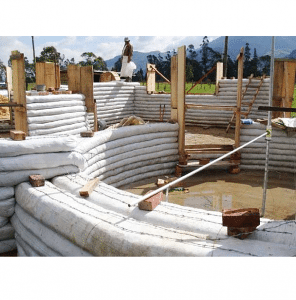
Agriculture
February 29, 2024
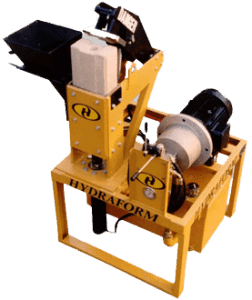
Agriculture
February 29, 2024
Implemented by
Hydraform
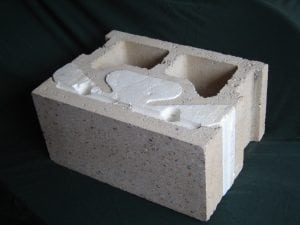
Agriculture
March 7, 2024
Implemented by
Francis Kennedy
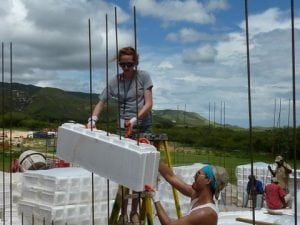
Agriculture
March 4, 2024
Implemented by
Lazarian World Homes
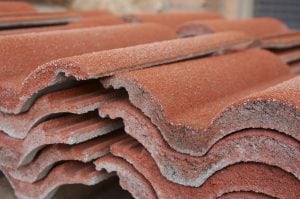
Agriculture
March 6, 2024

Agriculture
June 30, 2024
Implemented by
Lifeway Solar

Agriculture
June 23, 2024
Implemented by
Carpolo (Mohammad Nabaa & Ralph Khairallah)
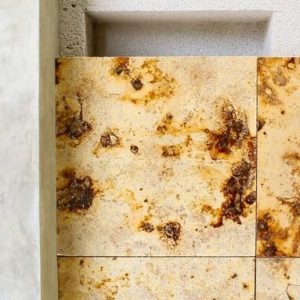
Agriculture
March 13, 2024
Implemented by
Mycotech Lab (MYCL)
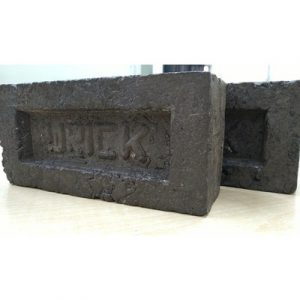
Agriculture
March 13, 2024
Implemented by
Angirus Ind Pvt. Ltd.
Have thoughts on how we can improve?
Give Us Feedback